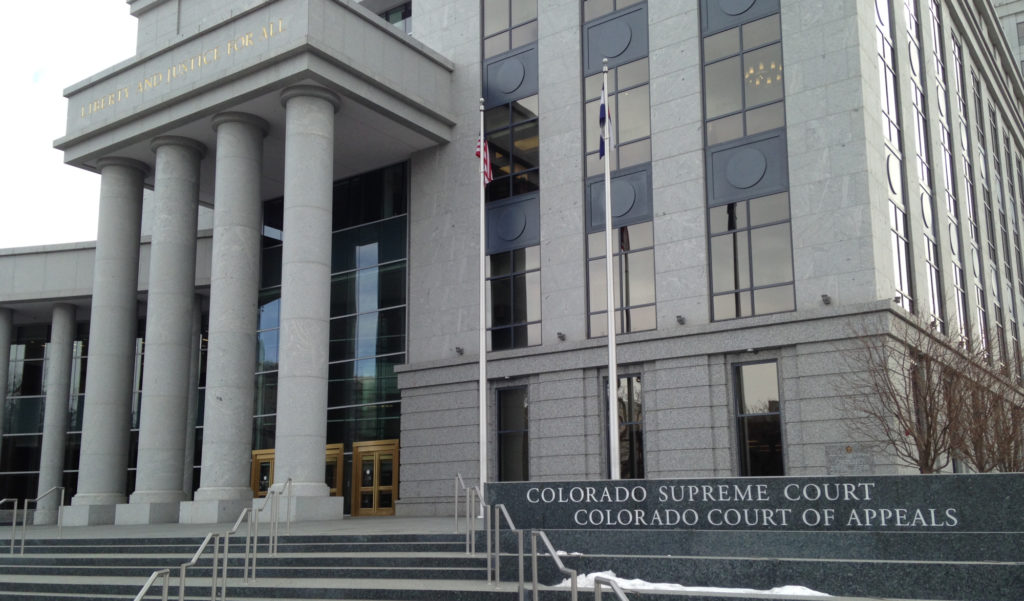By Jeffrey A. Roberts
CFOIC Executive Director
The state’s highest court announced Tuesday it will examine the “public interest” parameters of a 2019 statute designed to protect Coloradans from meritless lawsuits that target free expression.
In a defamation case brought by a veterinary clinic, the Court of Appeals ruled last year that the anti-SLAPP law does not protect online criticisms “made primarily for the purpose of airing a private dispute.” The “vast majority” of statements made about the Tender Care Veterinary Center in Falcon did not involve “a ‘public issue” or an “issue of public interest,” a three-judge appellate panel determined, affirming a district court’s denial of the defendants’ motion to dismiss the case.
The defendants asked the Colorado Supreme Court to review the precedent-setting opinion, arguing that if it’s allowed to stand, “all trial judges in the state will be free to impose overly constrained views of what constitutes a matter of legitimate public interest. Then, few, if any, individuals will feel at liberty to alert the public to potentially unqualified practitioners and to business operators who actively try to silence their displeased customers.”

The justices will look at whether the anti-SLAPP law requires that a defendant’s speech “encourage, facilitate, or contribute to a general debate” before that speech is made “in connection with a public issue or an issue of public interest.” They’ll also decide whether courts must evaluate a speaker’s motive to determine if speech was made “in connection with a public issue or an issue of public interest.”
Colorado’s anti-SLAPP statute established an expedited process for dismissing civil actions, known as Strategic Lawsuits Against Public Participation, filed against people or news organizations for exercising their First Amendment rights about matters of public interest. When a libel claim fits that criterion, a court can be asked to rule on whether the plaintiff has established “a reasonable likelihood” of prevailing on the claim, potentially halting the case (although an appeal is allowed) before the expenses of the discovery process are incurred.
Tender Care sued Jennifer Lind-Barnett and Julie Davis in 2022, alleging they had defamed the business by posting negative reviews on Facebook about how their pets had been treated. The posts accused Tender Care of professional “malpractice” and of employing “incompetent” doctors and staff, according to court documents.
Lind-Barnett and Davis filed a special motion to dismiss the lawsuit under the anti-SLAPP law, which an El Paso County District Court judge denied on grounds they had failed to establish that their statements addressed “matters of public interest or a public issue.” Even if the case fell within the scope of the anti-SLAPP statute, the judge also decided, it could not be dismissed because Tender Care had demonstrated a reasonable likelihood of prevailing on its claims.
Because the Court of Appeals agreed with the district court on the public interest issue, it found “no need” to rule on whether the clinic would likely win the case.
But the appellate decision conflicts with other published opinions of the Court of Appeals and, left intact, “will undermine the purpose of Colorado’s anti-SLAPP act,” Lind-Barnett and Davis argued in a Supreme Court certiorari petition.
“Colorado enacted the anti-SLAPP Act to protect the free speech rights of the state’s residents from the crushing costs of having to defend unmeritorious tort claims premised on their speech concerning any matters of public interest or concern,” wrote their attorneys, Mark Kane and Steve Zansberg.
“The ultimate beneficiaries of this legislative scheme are not the speakers, but the recipients of such speech,” they added. And if speakers like Lind-Barnett and Davis are forced to endure protracted litigation to vindicate their rights to disseminate truthful speech on matters of public interest … the resulting diminution in the quantity of publicly available information is inevitable.”
The Court of Appeals erred, the petition says, “in failing to recognize that (1) statements concerning how a business open to the public treats its dissatisfied customers are also, unquestionably, of public interest, and (2) statements concerning the professional competency of a single medical professional — or a practice group … are of public interest, even if they don’t (also) discuss the general practice of medicine, or any particular medical procedure.”
Colorado Springs attorney Ian Speir submitted a friend-of-the-court brief for Public Citizen, a national consumer advocacy organization, and the Public Participation Project, a nonprofit that promotes anti-SLAPP legislation.
“The Court of Appeals’ decision adopts a narrow conception of the term ‘speech on a matter of public interest’ that is contrary to the way in which anti-SLAPP laws have been construed in other states and threatens to deprive many consumer reviews of the protection of Colorado’s anti-SLAPP law,” the brief contends.
Follow the Colorado Freedom of Information Coalition on X (formerly Twitter) @CoFOIC. Like CFOIC’s Facebook page. Do you appreciate the information and resources provided by CFOIC? Please consider making a tax-deductible donation.




